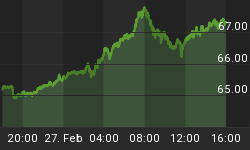With Athens looking to regain its economic independence, leaving the multibillion euro EU bailout program, the International Monetary Fund (IMF) has pressured eurozone governments to give Greece more long-term debt relief to prevent the country from being locked out of financial markets.
According to IMF calculations, Greece’s long-term debt costs will be unmanageable in 20 years’ time because of the high budget surplus targets required by European creditors as part of Athens’ post-bailout conditions.
Greece is set to leave the bailout program on August 20.

(Click to enlarge)
Source: Bloomberg
The Greek crisis started in late 2009, triggered by the turmoil of the Great Recession, structural weaknesses in the Greek economy, and revelations that previous data on government debt levels and deficits had been underreported by the Greek government.
Greek wages fell nearly 20 percent from mid-2010 to 2014. The steep dive of GDP resulted in a severe recession, decline in tax receipts and a significant rise in the debt-to-GDP ratio. Unemployment reached nearly 25 percent, and still hovers at 20 percent.
Although significant government spending cuts helped the Greek government return to a primary budget surplus by 2014, collecting more revenue than it paid out, excluding interest, the country’s economy is plagued with a garden-variety of issues.
The IMF says without more debt relief measures, Greece could struggle to maintain market access over the long run.
Eurozone governments have agreed a debt relief deal that means Greece pays back little on its debt pile until 2032. Related: Uncertainty Mounts As Stocks Inch Closer To Record Highs
Although the resuscitating of Greece is seen widely as a success, the entire Adriatic region faces new problems, and Greece’s economy is still fragile.
Great Britain‘s economy registered the most lukewarm performance over the last five years in the first half of 2018, a result of Brexit. Fears of trade war with the United States haven’t tapered off. The election of an anti-austerity far-right government in Italy has revived apprehensions about the euro, and the idea of cutting off the currency union’s weakest link, i.e. Greece, has resurfaced.
IMF officials, with a nod from France, had pushed for automatic debt relief measures to kick in for Greece if the economy does worse than expected. However, the proposals were turned down by more hawkish governments, like that in Germany, which is reluctant to offer Greece more generous debt terms and, importantly, to write off another batch of its debts.
Related: Smart Money Moves Into Risky Territory
According to the IMF, Greece’s debt costs will “begin an uninterrupted rise” after 2038, to about 20 percent of the country’s GDP every year. Should that happen, additional relief would be needed to secure debt manageability, says the Fund.
Though Greece’s economy is expanding, it is still only three-quarters of its pre-crisis size. IMF’s gloomy Greece prospects stem from its more pessimistic outlook on the country’s growth outlook compared with projections by EU creditors.
The fund estimates that the EU’s demand that Athens reaches an average primary budget surplus of 2.2 percent of GDP until 2060 will hit Greece long-term. A 1.5-percent surplus target is more realistic, according to the IMF.
By Linas Jegelevicius for Safehaven.com
More Top Reads From Safehaven.com
















